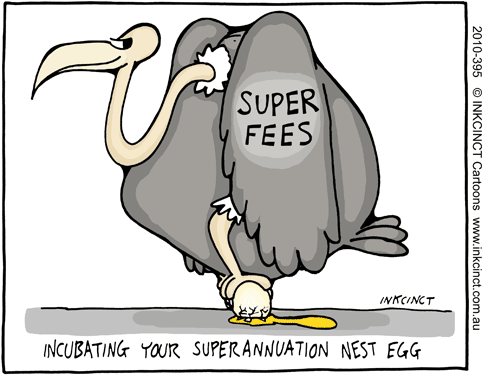
Beware of the Middle Man
May 14, 2016
Self Managed Super – Savior or Scam?
August 17, 2016There are a lot of myths in investing and a big one is that you will never lose money in bricks and mortar. Well the simple answer is that not only can you, but that many people do every day. And they lose a lot.
CoreLogic® RP Data’s – Pain and Gain December Quarter, 2015, report provides some hard numbers to disprove this myth by looking at resales stats for properties around Australia and there is plenty to take note of and hopefully some lessons to be learned so you can avoid the financial and personal pain. Importantly, while the report relates only to the December Quarter 2015, the findings are not hugely different to other timeframes and the focus here is on findings that are consistent over time. For those interested in all the facts and figures see the link at the bottom of this article.
The Facts
First some stats from the report.
- 7.2% of house sales across Australia were for less than the purchase price.
- For capital cities the figure was 4.7%.
- While for regional areas the figure was 11.7%.
- 11.3% of unit sales across Australia were for less than the purchase price
- For capital cities the figure was 7.9%.
- While for regional areas the figure was 20.0%.
- 7.2% of sales by owner occupiers across Australia were for less than the purchase price
- For capital cities the figure was 4.8%.
- While for regional areas the figure was 11.5%.
- 10.6% of sales by investors across Australia were for less than the purchase price
- For capital cities the figure was 7.4%.
- While for regional areas the figure was 17.7%.
- The average holding period for a loss making house was 5.9 years, versus 10.7 years for a house sold for a gain.
- The average holding period for a loss making unit was 6.6 years, versus 9.5 years for a unit sold for a gain.
- The average loss was $69,493.
There’s More Pain than the Numbers Say
It is important to note the above statistics are based on reported sale prices. They do not incorporate transaction costs, such as stamp duty, agents’ commissions and legal costs and they do not incorporate any improvements undertaken to the properties during the period of ownership. Accordingly, the real number of properties sold for a loss will be higher. Possibly much higher.
More than 1 in 10. I bet that’s higher than you thought.
Why don’t you hear about it? Well, if it was you how many people would you be telling?
General Take Outs
There are some general outcomes from the report worth taking note of.
- You are more likely to make a loss on a unit, than on a house.
- You are more likely to make a loss on a house or unit in a regional area, than in a capital city.
- You are more likely to make a loss if you are an investor, as opposed to an owner occupier.
- You are more likely to make a loss if you hold the property for a shorter timeframe.
Go Cap, Not Country
There are many reasons for these outcomes and we could discuss them for days, but I’ll just focus on a few specific issues that can be easily remembered and applied.
The difference between capital cities and regional areas is significant and is a clear indicator of the need for underlying population demand. Regional areas have slower, or even negative, population growth and greater reliance on specific industries and employers. You need to be looking at something pretty special in a regional area to fight the powers of base population demand, which heavily favour capital cities.
Think like an Owner Occupier
If you are an investor you need to think like an owner occupier to reduce your risk of loss. If you wouldn’t live there, what makes you think someone else would? Also impacting the investor versus owner-occupier difference is likely to be an information/understanding imbalance.
As an owner occupier you intend to live in the market place in which you are buying, you possibly have lived there your entire life. You typically have a better base understanding of the market. You have that local knowledge that an out of town investor will struggle to ever achieve.
As an investor you have to work harder to make sure your understanding of the market you intend to buy in is really up to scratch. If you’re not prepared to put in the time and effort you may be best to use a buyer’s agent/advocate that covers the area you are looking at or to help you to know where to look. In this case you are paying for the local expertise they have built up over time.
I suspect the investor versus owner occupier knowledge difference is also a key factor in why houses also do better than units, with investors tending to favour units over houses. Land content is likely to be another key factor benefiting houses over units.
Know When to Hold’em, Know When to Fold’em
The final key take aways relate to the holding period difference for those selling at a loss versus a gain. For me there are two key points here.
The first is that if you expect you will be moving on from the property within a few years you need to give much greater weight to the option of renting. Remember those transaction and ownership costs mentioned earlier. How much growth in value do you need just to cover these costs and how long is it likely to take.
Also, don’t believe another great property sales myth that rent is dead money. It’s not. If it was then we’d have to say the same for interest on a home loan and many other costs of property ownership, but surprisingly I’m yet to hear it from those pushing the rent is dead money myth. Renting is more flexible, potentially much less expensive and just may be the right option for you right now.
The second point is a bit of a trap in the statistics. You might have looked at the stats and thought you just need to hold property longer to make sure you get a gain, say increasing your ownership from approximately 6 years to approximately 10 years. This may be the case, but you are also at risk of perpetuating the mistake of not valuing the time cost of money. Typically time won’t save a bad investment, but inflation can create the illusion that it will.
Let’s say you bought a property 6 years ago for $400,000 and it is now worth $375,000, so you are sitting on a loss. You decide to hold on for another 4 years and the value has increased to $425,000. You are feeling good as you are now looking at a gain over your 10 years of ownership.
At the same time we all know that inflation erodes our purchasing power, but we often don’t appreciate how much. Very simply, if inflation is 3% you need $103 in a years’ time to buy what $100 buys you today. If we apply this to the property example, the initial $400,000 value needs to be $477,620 by year 6 and $537,566 by year 10 just to have maintained it’s real, inflation adjusted, value.
By year 6 you had actually lost more than you thought and by holding on you didn’t actually make $50,000. You lost another approximately $10,000 in purchasing power.
As Kenny Roger’s sang, “You’ve got to know when to hold’em, know when to fold’em, know when to walk away, and know when to run”.
Do Your Homework
The aim of this article is not to scare people away from buying property, as property ownership and investment can be very profitable, but to get you to think much more about it than many do. Making a gain is not a given, so don’t leave it to luck.
For most of us property purchases are likely to be the single largest purchase decisions we will make in our lives. They should be the result of weeks, or even months, of thought and research, not a couple of hours or even a couple of days. If you spent more time planning your last big holiday than your last property purchase, don’t do it again.
The number of people making huge financial commitments off the back of emotion driven impulse decisions is scarily high and it is these people that are likely to be heavily represented in the loss numbers, at an average cost of more than $69,493 each time. Don’t be one of them.
Core Logic® link
http://www.corelogic.com.au/media-release/pain-or-gain-winners-and-losers-revealed
Disclaimer
This advice is of a general nature only and may not be relevant to your particular circumstances. The circumstances of each person are different and you should seek advice from a financial planner who can consider if any strategies or products mentioned are right for you.

